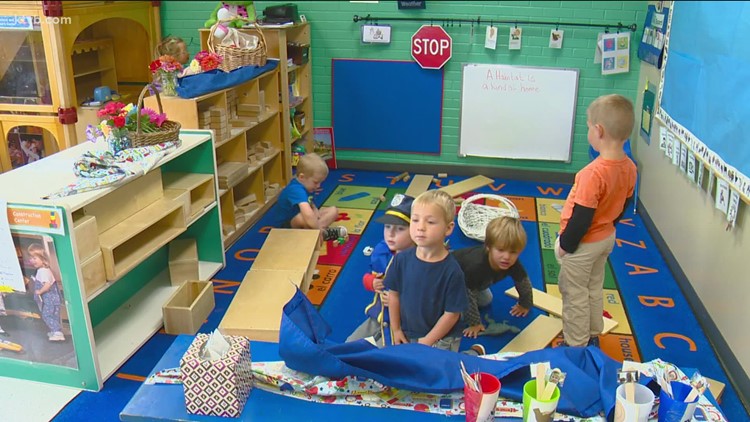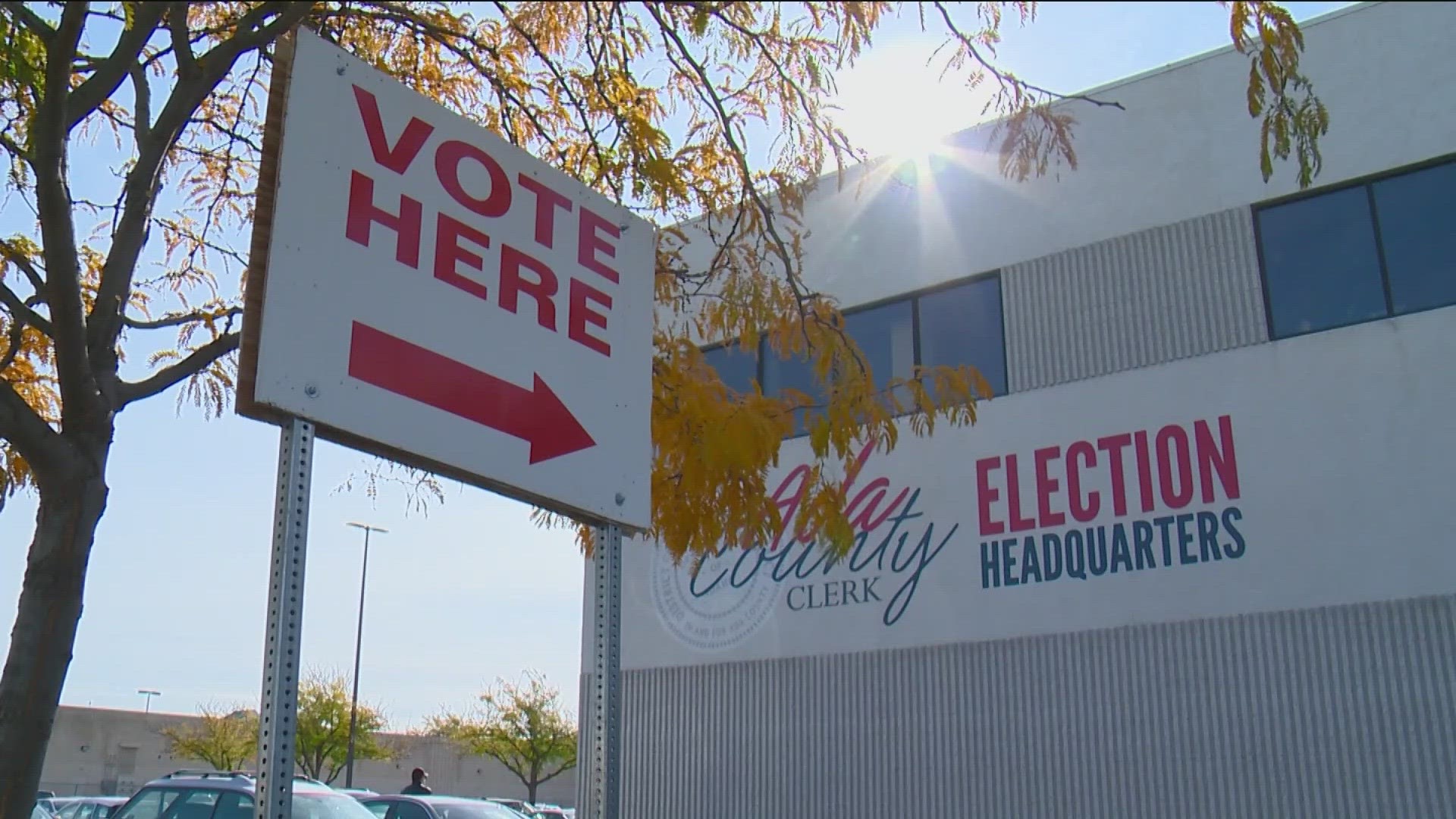BOISE, Idaho — For years, Idaho education advocates have pushed for funding to help pay for optional full-day kindergarten.
“Any time that you can invest in early childhood education and literacy is a good thing,” said Beth Oppenheimer, Executive Director for the Idaho Association for the Education of Young Children.
Like others, she is tracking House Bill 790, legislation that in part could help fund optional all-day kindergarten for school districts who choose to host it, using established literacy funding.
“This just gives them the ability to use this funding for full-day kindergarten so that they can use the other literacy dollars or other funding that they've been using. In different ways,” Oppenheimer said.
In short, HB 790 adjusts the literacy funding formula, so schools receive dollars based on attendance and how students improve their literacy in the classroom. With the literacy funds, schools and districts can institute programs that they feel will best benefit the students in their area, like for example, full-day optional kindergarten.
The bill’s co-sponsor, Representative Ryan Kerby, elaborated during the debate.
“School districts have the flexibility to do an extended day during the year. They can do summer school, they can do kindergarten, they could do smaller class sizes, they can hire more aides they could buy a curriculum. They could bring the little kids in on Fridays if they're a four-day week. They have the flexibility to do what they want,” Kerby said.
In the House debate, critics raised financial and practical concerns while supporters pushed back on those notions.
“This way apparently isn't working, adding more and more money. $72 million in a literacy program for what I think is already in the job description of K through three education. That reading, is one of those fundamentals of K through three education, is it not? Why do we have to adopt another program and add more money for what is already supposed to be happening in schools,” said Representative Ron Nate.
Supporters described how it could be helpful.
”It allows more flexibility in the schools. It allows those teachers to do the things that they think are right in order to help all kids get where they want to be. And that is, all of them reading by the end of third grade. We want results. We've changed how we're asking them to show those results. I think it's well worth the money to do that,” said Representative Julie Yamamoto.
At least one lawmaker raised concerns about full-day kindergarten in general.
“We have not talked about the research. Honestly, we don't have the research that honestly shows whether it's good or bad. We have not considered the hundreds of families in this state who do not want their five-year-old in a full-day kindergarten,” said Representative Gary Marshall.
Some lawmakers argued that the new funding formula and programs would promote literacy improvements.
“The schools are going to be incentivized to get their students to move from below basic to basic, basic to proficient, and maintain their proficiency. And I think that's important to know the,” said bill co-sponsor Representative Lance Clow.
After debate, the legislation passed the house 40-29, and Tuesday afternoon it also passed a senate committee, paving the way for one final vote in the full Senate to send it to Gov. Little’s desk.
Advocates for full-day Kindergarten acknowledge this isn’t the exact bill they set out to have passed, they hoped for specific legislation to fund optional all-day kindergarten. To be clear, this bill doesn’t fund kindergarten specifically but allows literacy funds to do that if a local area decides it’s best for them. Kindergarten is not a requirement in Idaho, but local districts do have programs depending on the area of Idaho. Education advocates say this is a step in the right direction.
“Let's not let the perfect be the enemy of the good,” Oppenheimer said. “Here we are. We're in a position where we can make some incremental improvements in the state's ability to fund early childhood education, specifically literacy. And at the end of the day, we want more children being able to read and have those foundational skills to be successful so that they're successful the rest of their academic career.”
Join 'The 208' conversation:
- Text us at (208) 321-5614
- E-mail us at the208@ktvb.com
- Join our The 208 Facebook group: https://www.facebook.com/groups/the208KTVB/
- Follow us on Twitter: @the208KTVB or tweet #the208 and #SoIdaho
- Follow us on Instagram: @the208KTVB
- Bookmark our landing page: /the-208
- Still reading this list? We're on YouTube, too:



